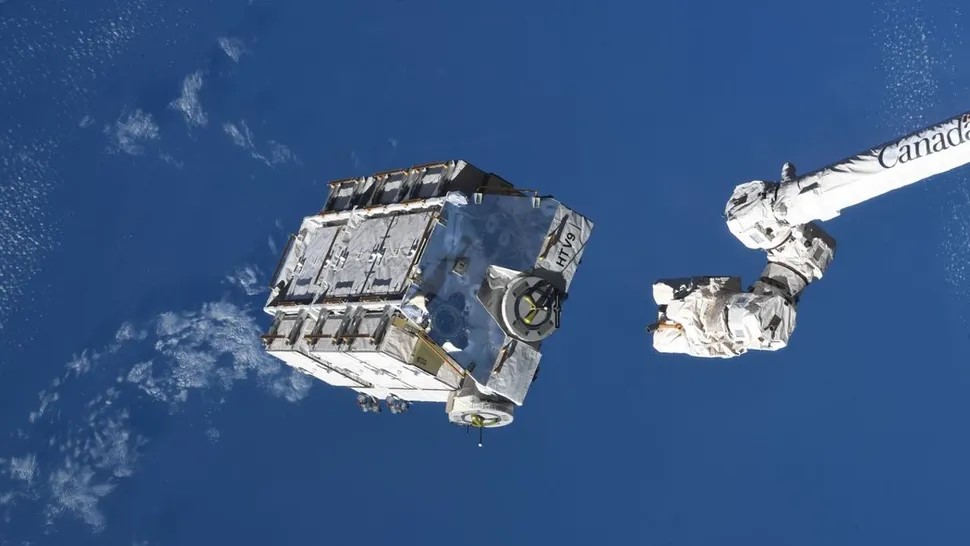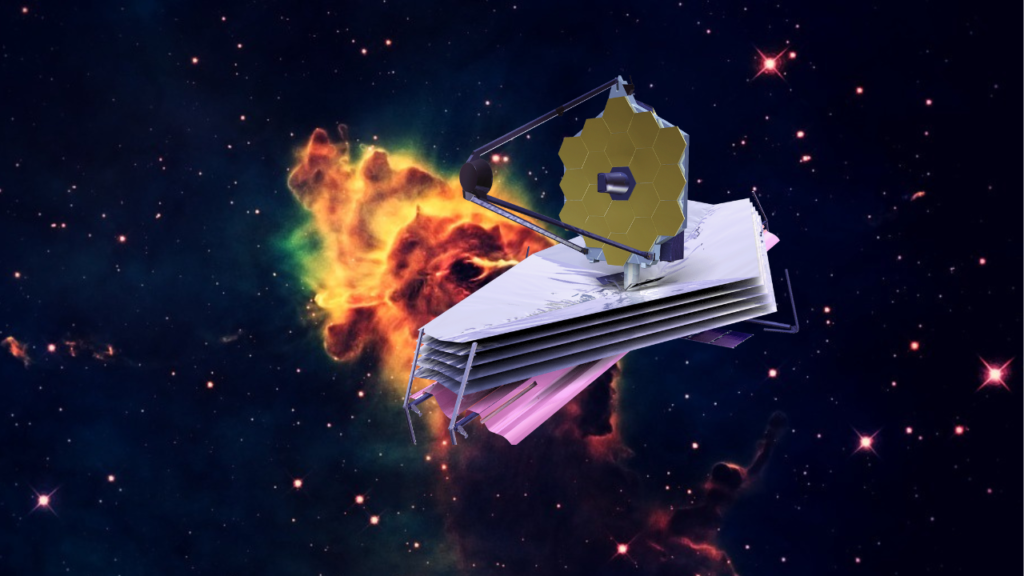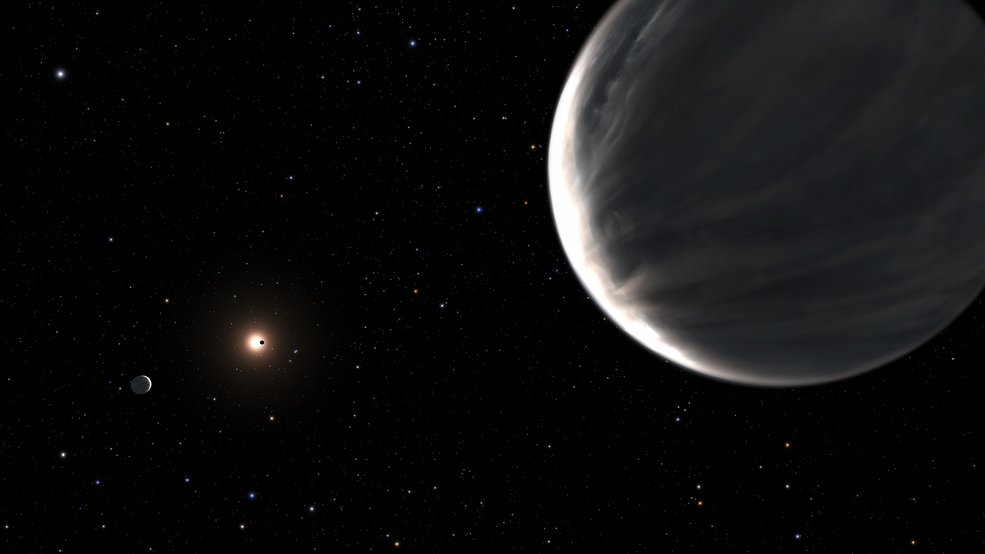A mysterious object that came crashing through a house in Florida is possibly debris from the International Space Station (ISS).
The cylindrical tube was a few inches long and weighed nearly 2 pounds (0.9 kilograms). It crashed through the roof and both floors of Alejandro Otero’s home in Naples, Florida, at 2:34 p.m. local time on March 8, startling his son.
The origins of the object have yet to be determined, but Otero thinks it’s likely one of nine drained batteries discarded from the ISS. Earlier the same day, a large cargo pallet carrying the batteries and belonging to the Japanese space agency JAXA re-entered Earth’s atmosphere over the Gulf of Mexico. Jettisoned from the space station in 2021, the debris was expected to burn up in the atmosphere; at least one piece may have survived reentry.
“Looks like one of those pieces missed Ft Myers and landed in my house in Naples,” Otero wrote on X, formerly known as Twitter, in response to a post describing the jettisoned pallet. “Tore through the roof and went thru 2 floors. Almost his [hit] my son.”
Otero has handed over the home-wrecking debris to officials from NASA. Hello. Looks like one of those pieces missed Ft Myers and landed in my house in Naples. Tore through the roof and went thru 2 floors. Almost his my son. Can you please assist with getting NASA to connect with me? I’ve left messages and emails without a response. pic.twitter.com/Yi29f3EwyVMarch 15, 2024. “NASA collected an item in cooperation with the homeowner, and will analyze the object at NASA’s Kennedy Space Center in Florida as soon as possible to determine its origin,” Joshua Finch, a NASA spokesperson, told Live Science.
Once engineers identify the provenance of the object, Otero will seek to make a claim against the federal government to pay for his house’s repair, although this process could prove complex if the material is deemed to have come from JAXA.
Florida isn’t the only place that’s been hit by falling space junk. Four of China’s Long March 5B boosters — the workhorses of the country’s growing space program — fell to Earth between 2020 and 2022, raining debris down on the Ivory Coast, Borneo and the Indian Ocean. In 2021 and 2022, debris from falling SpaceX rockets smashed into a farm in Washington state and landed on a sheep farm in Australia.
Space agencies around the world try to keep tabs on the more than 30,000 largest pieces of junk, but many more pieces of debris are too small to monitor.
Scientists have proposed multiple ways of tidying Earth’s skies, such as gathering junk up in nets; collecting it with clawed robots; or firing a half–mile-long (0.8 kilometer) tether from another spacecraft to grab it.
Source: https://www.space.com/space-junk-hits-florida-home-from-international-space-station



